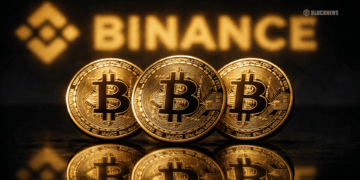Belgium’s Financial Services and Markets Authority (FSMA) has said that Bitcoin and Ether are not securities because they do not have issuer.
The Belgian regulator’s comment come after a series of questions about how regulators treat cryptocurrency, and hopes to address the most frequently occurring concerns and unknowns. This, according to them, includes when digital assets can be classified as securities.
The Belgian regulators said that crypto such a Bitcoin does not qualify under this requirement because it does not have an issuer.
“If there is no issuer… then in principle the Prospectus Regulation, the Prospectus Law and the MiFID rules of conduct do not apply.”
However, according to the statement, if the instruments have a payment or exchange function, additional rules can be applicable. The release also specifies that the individuals who offer these services will also come under other rules.
Although the rules are not applicable in the case of Bitcoin and Ethereum, still, other requirements hold particularly where crypto companies are concerned. In this regard, the law demands that crypto firms apply anti-money laundering procedures.
According to the Financial Services and Markets Authority (FSMA), if an asset is not incorporated into an instrument, then it cannot be classified as a security or an investment instrument.
Bitcoin not a Security, Belgian Rule is Neutral
According to the regulator, jurisdictions like the United States, concerns surrounding crypto, securities have led to court proceedings, with the U.S. Securities, and Exchanges Commission (SEC) insisting Ripple Labs should have registered its crypto, XRP.
In a statement by the FSMA , the regulator said that the Belgian rule “is neutral as regards technology, proposing that “classification as a financial instrument or security should not hinge upon whether an asset uses a blockchain or something more tradition.”
In the most part, the Belgian rule mirrors the ones stipulated in a July consultation, suggesting, “transferable instruments with an issuer could constitute a security,” to mean that issuers must produce an honest prospectus of information for potential investors.
Additionally, the issuers must apply a European Union (EU) law dubbed MiFID, which demands that financiers remain clear and avoid conflicts of interests.
EU Markets in Crypto Assets Regulation
A new European law dubbed the Markets in Crypto Assets regulation (MiCA) is also slated for implementation in the next few years. When this happens, MiCA will require new cryptocurrency offerings for the production of a white paper, like in the case of a stock prospectus.
It is worth noting that Belgian rules passed in 2014 make it unlawful for professionals to distribute financial products based on crypto to retail clients.
According to the release, the “stepwise plan is neutral in the area of technology.” This is interpreted as “the technology employed has no bearing on the eligibility of an investment as a security, or any other financial instrument for that matter.
The rules come at a significant time when the U.S. Securities and Exchange Commission (SEC) chair, Gary Gensler, has insisted that most cryptocurrencies are securities. Recently, Ripple and the SEC have been at odds, knocking horns in court as the SEC claims that XRP is an “unregistered securities offering.”
In Gensler’s opinion, Bitcoin is the only crypto that qualifies as a commodity. Meanwhile, the SEC recently won another enforcement case when it reported payment network LBRY for allegedly selling unregistered securities on its decentralized video publishing platform.
Earlier this year, Gensler said that crypto financial assets have the key attributes of a security, adding that “most of the tokens… the investing public is hoping for a return just like when they invest in other financial assets we call securities.”
Congress ought to reach a consensus on the treatment of crypto after the President’s executive order passed earlier this year. Nevertheless, Congressman Tom Emmer has articulated his stance that a great majority of today’s tokens are commodities or currencies.














